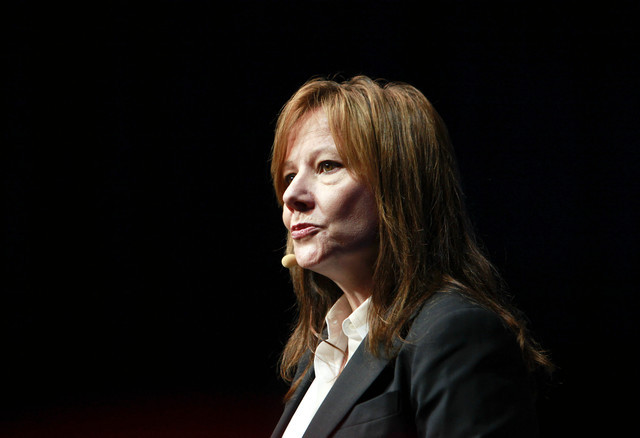 |
Mary Barra (Qilai Shen/Bloomberg) |
In a move both groundbreaking yet also very traditional, General Motors Company CEO Dan Akerson will be replaced by GM “lifer” and global product chief Mary Barra.
But GM Korea chief Sergio Rocha has probably just shrugged his shoulders.
Though the ranks of top women executives at top global brands gets a bump with Barra’s appointment, not much has changed for GM in South Korea.
Barra will surely follow through with the expected downsizing of GM Korea’s presence in South Korea. GM gets about 20 percent of its global production from its South Korea production platform.
What the move does do is put into sharper focus the company’s continuing restructuring. It is a shakeup that Ackerson started after the world’s second-largest auto company in terms of sales ― $150 billion in revenue in 2012 ― exited government-guided bankruptcy in July 2009.
Barra, 51, will be the first woman to lead a global automaker. Now, GM is the largest company by revenue run by a female CEO.
It was Akerson who gave Barra her shot. He moved her to run global product development and logistics from a post as head of human resources, a job that is often described by auto insiders as a cul-de-sac for women in the car business.
Her 2010 move to product development positioned her for Tuesday’s promotion, which was a watershed for an industry that has lagged behind others in advancing women to top leadership roles.
GM will likely end its manufacturing operations in Australia as early as 2016, according to media reports. GM Korea, which stands to lose Europe as an export market for the Chevy vehicles it builds, could pick up orders by boosting exports to Australia, but it will likely not be enough.
GM Korea was responsible for manufacturing most of the Chevy cars it sold in Europe. Last week GM announced it was pulling its Chevys out of Europe, in line with the restructuring started by Ackerson.
But GM is already cutting the number of cars it currently makes here by nearly 20 percent over the next two years. That means its South Korean factories will produce 650,000 vehicles in 2015 compared with the 800,000 vehicles this year.
Last week, GM Korea announced it would produce about 147,000 vehicles next year at the 260,000 vehicle-capacity plant in the southeastern city of Gunsan.
By Philip Iglauer (
ephilip2011@heraldcorp.com)








